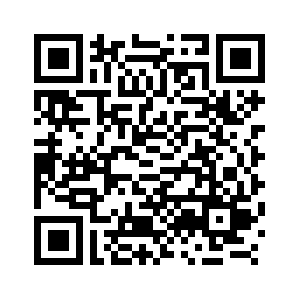HANGZHOU, Dec. 9 (Xinhua) -- As the 2022 FIFA World Cup entered its knockout phase, China's presence continued to spread in Qatar.
Made-in-China hats, balls, bracelets and badges have streamed into World Cup retail stores in Doha, Qatar's capital. Thousands of miles away at the Yiwu International Trade Market in east China, shop windows are filled with jerseys, flags and other World Cup souvenirs. Data shows that "Made in Yiwu" products account for about 70 percent of peripheral commodities related to this year's World Cup.
Wu Xiaoming owns Aokai Sports Goods Co., Ltd., which sells mainly footballs, selling a record 1.5 million balls a year. Wu's company has gained official authorization to produce commemorative footballs for the 2022 World Cup.
"The competitive quality standards helped us get the authorization," Wu said, adding that since 2021, the company's products have become the designated balls for the Zhejiang Provincial Games, and he has received orders from a Spanish league and several companies in East Asia.
Over the past summer, Chen Xianchun's order volume increased by nearly 50 percent year-on-year. The businesswoman has been engaged in foreign trade for nearly 18 years, selling mainly peripheral World Cup products such as commemorative trophies, medals and key chains.
"Though fewer foreign merchants have come to Yiwu these two years, overseas demand is still high," Chen said.
Ding Xiaoxu, head of the Yiwu branch of Shaoxing Bolisi Tour Articles Co., Ltd., said the company started to make World Cup products in November 2021, and most orders came in between June and August this year.
"With the finals approaching, there will be another sales peak," he said. The company has experienced five World Cups, producing flags, fan wigs and other textiles.
"Over the years, we have been constantly improving our product details, including fabric density, thickness and packaging, on par with customer needs," he said. "We try our best to meet their requirements."
According to data recently released by Chinese e-commerce giant AliExpress, sales of World Cup flags have soared 300 percent in the United Arab Emirates and 160 percent in Spain, sales of football star cards have surged 580 percent in Saudi Arabia, and sales of comfortable sofas skyrocketed 1,156 percent year-on-year in Brazil.
And the draw of China is not only reflected in commodities. On the streets of Doha, many of the buses taking fans across the city are new energy vehicles from China.
After the World Cup, these electric buses will become an important part of Qatar's public transport system and serve the local people. "For the first time, China's new energy buses have been introduced in large quantities at major international sports events," said Gan Shaoying, head of the Qatar service team of Chinese bus maker Yutong Bus.
The 80,000-seat Lusail Stadium is one of the main venues of the World Cup. It hosted the opening ceremony and will host 10 matches by the end of the tournament, including the final. It was jointly constructed by Qatar and the China Railway Construction Corporation, and it is the first main World Cup stadium for which Chinese enterprises have been the main contractors.
Xing Zunsheng is the technical director of China's Jinggong Steel Building Group, which undertook the construction of the stadium's main steel structure. Xing said that in order to adjust the structure at a height of more than 50 meters, the team developed a miniature hydraulic pump station and a corresponding lifter to carry out precise hoisting using 5G.
"The project has pinpoint accuracy requirements. We made use of three-dimensional scanning and other digital analysis methods to detect the size of components," Xing said. ■



